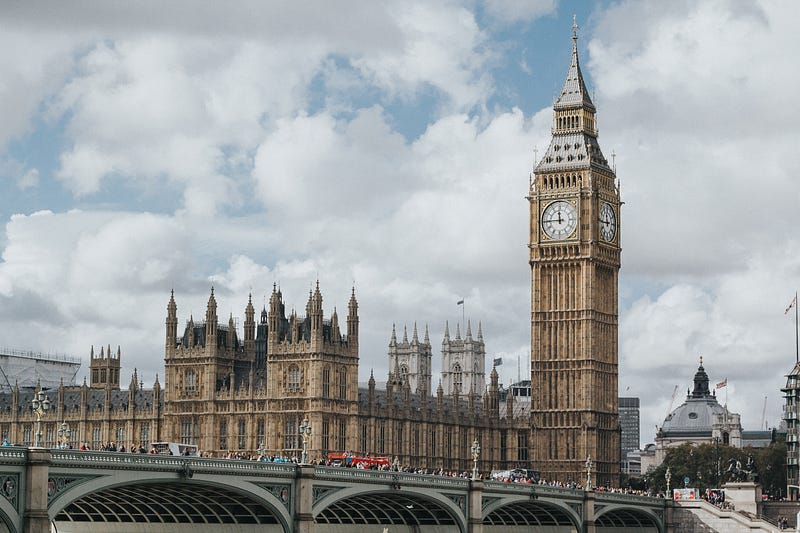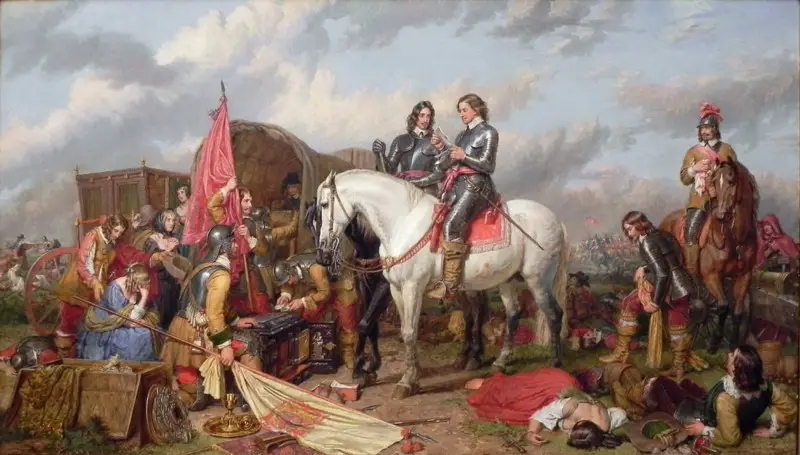 ark it in your diaries: it’s 16th December. The English Bill of Rights or to give it the full title An Act Declaring the Rights and Liberties of the Subject and Settling the Succession of the Crown 1689 is lesser known than our other more famous document Magna Carta.
ark it in your diaries: it’s 16th December. The English Bill of Rights or to give it the full title An Act Declaring the Rights and Liberties of the Subject and Settling the Succession of the Crown 1689 is lesser known than our other more famous document Magna Carta.
It was not the first document of its kind to set down rights for citizens/subjects — it’s quite unremarkable in that respect. It is, however, vitally important in the formation of England’s and by extension, Britain’s modern political system.
The Political Situation that Led to the Creation of The Bill of Rights 1689
100 years before France decided to dispense with its monarchy and about 90 years before the American colonies decided they didn’t want to pay tax without a say over how it was collected, England was having a mini-revolution of its own. For the first time, England as a nation stopped being a monarchy and became a Commonwealth under the Protectorate of Oliver Cromwell.
This government began with the beheading of King Charles I and ended with the death of Cromwell, who, in the last years of his life, was urged to become king. He refused and upon his death, his son was declared unfit to govern.
And so we decided that we actually rather preferred to have monarchy back, if it’s all the same with you.
The period that followed is known as The Restoration. The new King Charles II was known as “The Merry Monarch”. He enjoyed a largely happy reign and died in 1685. His successor was Charles I other son: James II.
James was strongly pro-Catholic and this upset the Protestant nobility. What’s more, he showed all the signs of believing in the absolute rule of the monarch that led to his father’s execution (some people choose to learn the hard way, eh?).
But the nobility had a plan; they would depose James II and in his place install the Dutch husband of his sister Mary: William of Orange. However, Mary demanded that they rule jointly — she had direct lineage of the Stuart bloodline and stated that she would not surrender power to her husband.

The Context of the English Bill of Rights
The “war” known as The Glorious Revolution would see William invited to invade with a Dutch army and seize the throne on behalf of himself and his Stuart wife. But the nobility had a trump card to ensure that no monarch ever again decided to get above their station and subvert Parliament.
One year after the succession of William & Mary, they pushed The Bill of Rights 1689 through Parliament. It would change the nature of monarchy in Britain forever.
The king/queen (in the case of William and Mary — both) would no longer be able to act under the authority of God alone. It tied the monarch to the ruling of Parliament.
The one legacy of Cromwell that the country decided to keep was to see the birth of our modern Parliamentary Democracy. The concept of Divine Right of Kings was now dead; Parliament ruled supreme and set down legal rights for subjects and obligations for the Crown. This was just as unprecedented as Magna Carta was some 470 years before, and just as important.

What is in the English Bill of Rights?
Some clauses listed below survive to this day into modern acts and rights. Some also influenced both the US Constitution and The Bill of Rights.
- The Crown may not (to include the monarch and any advisors) throw out or suspend any law unless he/she has the consent of Parliament
- Any subject, regardless of position, may legally petition the monarch on their own behalf or that of anyone else and not face prosecution
- Taxes are levied and altered by Parliament. The Crown may not adjust or raise taxes without Parliamentary consent. This had been one of the major problems of Charles I reign
- Only Parliament may raise and keep a standing army in peacetime. The Crown may not do so without Parliamentary consent. Today, the monarch is Commander in Chief but Parliament alone decides when and where to deploy military forces
- Crucially, it establishes the right of free elections of MPs to Parliament
- One adopted by the American Bill of Rights is the right to bear arms for one’s own defence. The clause here only permits “Protestants” but crucially, a fail-safe exists within the English Bill of Rights that seemingly does not exist in the US document. That clause is “suitable to conditions and as permitted by law”. This permitted Parliament to adjust and amend gun laws in line with both public feeling and public safety
- No member of the crown or any other organisation outside of Parliament may question, impeach or challenge Parliamentary decisions. These days, of course, we have free speech to criticise the government
- No cruel or unusual punishments; fines ought to be proportional and just
- Provisions are also made for free and regular sessions of Parliament to ensure strength, preservation and amending grievances of laws
These are the most important to us today. Some are less relevant such as that jurors in a criminal trial ought to be a freeholder. Finally, it listed 12 points that declared James II flight to France as abdication, listing the reasons for why his actions were illegal.
Indeed, some of the points above were in direct reference to James acts to ensure they never happen again.

I’m Matt, pen name MG Mason. I write here primarily about British history and archaeology though sometimes other areas of Europe too. My main areas of passion include medieval history, and Roman Britain. I have a Bachelor of Arts in Archaeology and a Master of Arts in Landscape Archaeology, both from University of Exeter.





